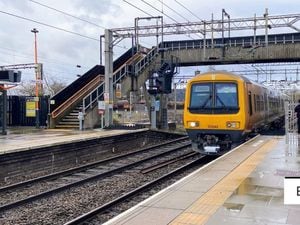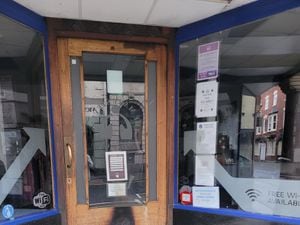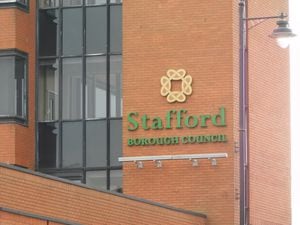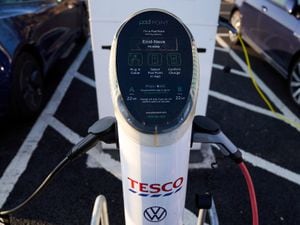John Anslow cleared: No more suspects sought over killing of Richard Deakin
No more suspects are being pursued for their involvement in the tragic murder of father-of-two Richard Deakin, police have revealed.


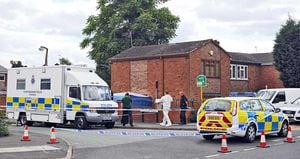
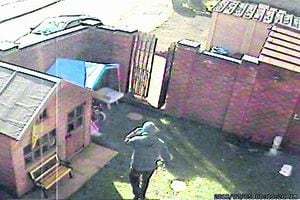
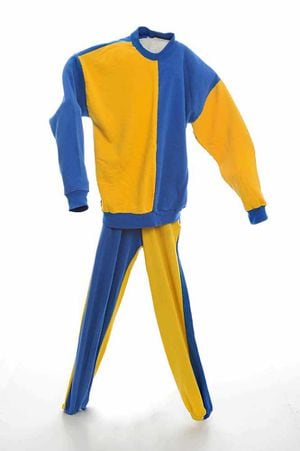

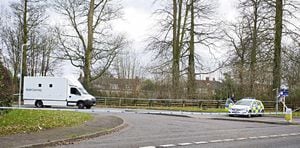
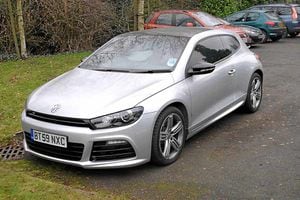
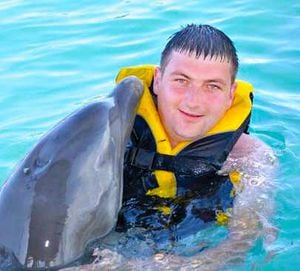
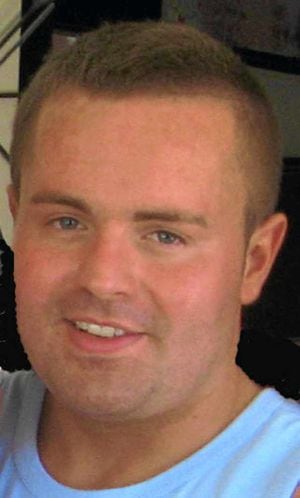
The man accused of organising the murder – 33-year-old Tipton drug lord John Anslow – was yesterday acquitted at Woolwich Crown Court of any involvement.
Although the case is technically not closed, officers are not actively chasing anyone else in connection with Mr Deakin's death.
He was shot as he lay in his own bed in Meadway Street, Chasetown, in July 2010.
Gunman David Harrison and getaway driver Darryl Dickens, both of Bilston, were convicted for their roles in December 2012.
It is widely accepted the pair were hired to carry out the murder but the hunt for the 'Mr Big' is now over. Staffordshire Police said after Anslow's acquittal that no one else was currently being investigated.
Detective Chief Inspector Darren Harding led the murder inquiry.
"At this time, we are not pursuing anyone else in relation to this case," he said.
"However, should any new lines of inquiries be established or new information received it will be followed up."
The admission potentially draws a line under one of the most shocking murders the West Midlands has witnessed in recent years.
It started at around 8.30am on July 5, 2010.
Megan Deakin said goodbye to her beloved fiancé, who was awake and lying in bed, as she left the family home to take their two young daughters to school.
The engaged couple had just spent the weekend together at a hotel in Nottingham and returned home at 9pm the night before having picked up their daughters up from Mr Deakin's mother, Carol.
Megan put the kids in the car and left.
But just a few minutes later, this picture of a happy, peaceful, idyllic family home was shattered forever.
A black Corsa pulled up outside the house.
Witnesses had seen the mysterious car circling the area and driving past the house, but this time it stopped and a man got out.
That man was David Harrison and he was wearing dark clothes, a black balaclava and blue latex gloves – a very forensically aware outfit lacking in unique details, an expert later said.
He opened the gate, walked to the back door, got into the house, walked to the bedroom and, with a sawn-off shotgun, opened fire. Mr Deakin, lying in bed, was shot five times.
Harrison left the house – walking, not running – got in the Corsa and left the scene.
Neighbours who saw Harrison enter the home had already phoned the police, concerned at the alarming sight of a balaclava-clad man appearing in such a quiet suburban area.
First on the scene was Pc David Challinor, who first noticed there were no signs of forced entry.
He made his way upstairs and made the grim discovery.
It would be more than two years before Harrison and Dickens were brought to justice, but clues had been left which would prove vital in their convictions. The getaway car was abandoned in a gateway to a nearby field – its number plates had been changed .
CCTV would soon be released of Harrison entering and exiting the house. One-time criminal associate Alan Cash recognised Harrison after the images were shown during BBC Crimewatch.
Mr Cash said he could tell by the gunman's build, his posture and the fact he wore a balaclava with the mouthpiece sewn up – a trademark of Harrison's to hide the fact he has few teeth. And a search of Harrison's van found blue latex gloves which looked strikingly similar to the ones seen on the gunman in the CCTV images.
Meanwhile at his Folkestone home police found a criminal kit – more gloves, wigs, masks and almost £26,000.
They also discovered a copy of an Express & Star, dated July 5, 2011 – a year on from the murder – in which an appeal for information was being made.
After obtaining billing records of Harrison's and analysing cell site data they discovered that he made three trips to Chasetown on June 4, 8 and 18 in the month before the murder, which were reconnaissance visits to check out the scene.
As for Dickens, who ran A&D Skip Hire in Bilston with Harrison, his conviction largely centred around being identified at the scene by Megan Deakin.
When she had left the house that morning she saw the getaway car.
At the time she didn't take too much notice, but later that night a flashback struck her. She made notes about how she had seen a car and a driver and then and gave a more detailed account to police. She later said in court: "He looked directly at me at one point, I've never forgot that face."
She gave vital evidence via video link identifying Dickens as the driver. Dickens and Harrison spoke on the phone 19 times in June and July 2010, while on the day of the murder Dickens' phone received 16 calls and one text between 7.49am and 9.28am, none of which were answered or replied to.
It was a long and painstaking investigation, one which involved a nationwide appeal and a £20,000 reward for information.
Jurors deliberated for three days but in December 2012 found both Harrison and Dickens guilty of murder, after a six-week trial at Birmingham a Crown Court.
Harrison was sentenced to life imprisonment, to serve a minimum of 37 years and Dickens was also sentenced to life imprisonment, to serve a minimum of 30 years.
The pair were described as 'cold blooded and calculated' by police. When sentencing Harrison and Dickens, Lord Justice Evans said: "This was a carefully planned and professionally executed contract killing. You were paid by people who are still at large. It involved people way beyond you. How many people is difficult, almost impossible, to say."
Anslow, who at this point was on the run in Northern Cyprus after escaping from police custody, had yet to face trial.
He had been charged with Mr Deakin's murder just days before being sprung from a prison van by men armed with sledgehammers and a shotgun in January 2012.
He was already on remand for drugs offences and was awaiting trial, but police would have to wait until earlier this month for his murder trial to get to court, a year after he was deported back to the UK. In between his return to the UK and this month's trial, Anslow had pleaded guilty to conspiring to escape from custody and been sentenced to seven years and two months.
Six others, four of whom also pleaded guilty, also received lengthy sentences.
They included getaway driver Moysha Shepherd –nicknamed The Stig for his driving prowess – who drove at 100mph in 30mph streets to get Anslow away from the scene outside HMP Hewell in Redditch and towards Birmingham.
He was sent down for four years and nine months, while Stuart Reid, who sent a coded Christmas card to prisoner Anslow detailing important details of his impending escape, was locked up for six years.
Anslow's sentence was added to the 22 years he was already serving for conspiracy to supply cocaine and cannabis, a verdict which was handed down in his absence in September 2012.
Harrison, his uncle, was given 12 years for his involvement in the large scale drugs network. After Anslow was yesterday acquitted of murder, police admitted they were 'very disappointed'.
But Det Ch Insp Harding said the whole investigation – which included looking into Anslow and Harrison's extensive drug trafficking operation – had uncovered wealth of criminal activity. However, a family member of Anslow's insisted he was a respected member of the Tipton community. "He has sponsored football teams, helped young kids boxing, helped a lot of people on the Tipton estate. In this parts he is well liked and well respected. He is not feared."
One person who has been helped out by Anslow's generosity was Wolverhampton X Factor hopeful Joe Whelan. Anslow gave him £3,000 to help his band, although Joe has always maintained he did not know about his criminal links.
Det Ch Insp Harding said: "We accept the decision returned by the jury which follows a very lengthy investigation into the tragic murder of Burntwood man Richard Deakin in July 2010.
"Detectives, and colleagues from the Crown Prosecution Service, worked meticulously to gather and present all the available evidence.
"We are very disappointed by the result but we cannot lose sight of the fact that Anslow is already serving a significant prison sentence – 29-years in total having been jailed for seven years and two months after pleading guilty to conspiring to escape from prison, and 22 years for drug supply offences.
"We are satisfied this longstanding investigation has finally come to an end. It also means we can expose Anslow's involvement in the previous cases and the public can finally learn what a pivotal role he played in drugs supply in the region. Most importantly, our thoughts remain with Richard's family. I hope they can now start to move on with their lives."

